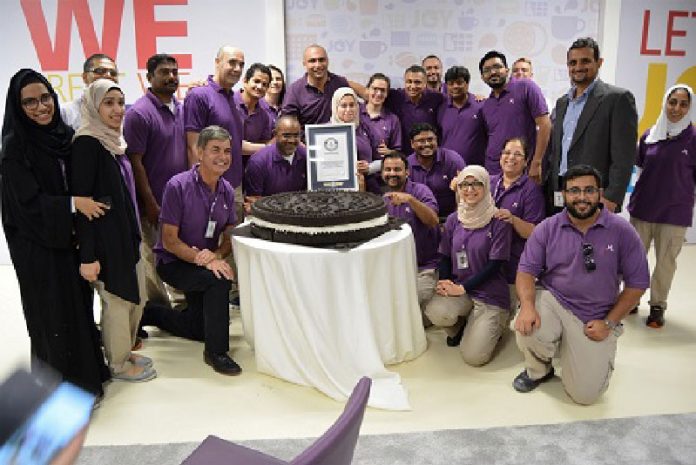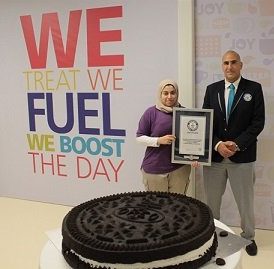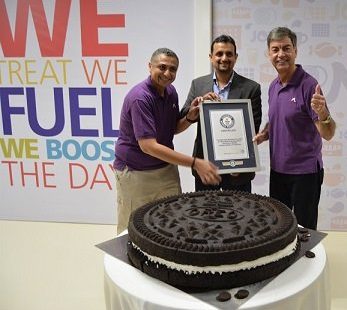Mondelez Bahrain Biscuits W.L.L. plant, the latest addition to Mondelēz International’s growing footprint in Middle East, breaks Guinness World Records title for the largest cream filled biscuit in the form of an Oreo.

It was a few weeks back when Safa Hassan, quality specialist at the Mondelez Bahrain Biscuits plant came up with the idea. The process was not short of challenges and required a giant mold to be designed locally by the R&D and plant operations teams to begin with. After a couple of attempts, the team succeeded in producing a well baked and unbroken cookie.
The team and witnesses held their breaths as the official adjudicator from Guinness World Records carefully measured the weight of the biscuit as per the standards of the record guidelines and only then declared the new record with cheers and applauses.
“We are extremely proud to have broken a Guinness World Records title for the largest cream-filled cookie at our newly established manufacturing plant in Bahrain. I would like to congratulate the Bahrain Biscuits team for their determination to achieve this milestone; it was wonderful to see the team come together and join forces to make history, especially at such a momentous occasion with the official plant inauguration taking place.” said Mr. Mohamed Shalaby, Plant Director at Mondelez Bahrain Biscuits WLL.




